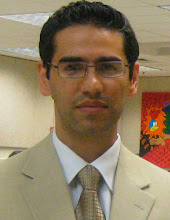
Hassan Zarehzadeh Ardeshir: Journalist and Human Rights Activist in an interview with gozaar (Freedom House)
The alliance of opposition movements, the critics of the Islamic Republic, and the challenge that this unity has posed to the system’s legitimacy are regarded as the achievements of the Green Movement. These are the achievements for which the democracy-seeking forces have struggled for years. Most political forces have believed that the formation of a united front that consists of progressive forces, along with questioning the regime’s legitimacy, can encourage both the people of Iran and the international community to demand fundamental changes in Iranian society. Now this opportunity has arrived.
Meanwhile, the Islamic Republic has not remained idle either and, as always, has tried to cripple the efforts of people for bringing democracy to Iran. The Islamic Republic has resorted to two tactics: on the one hand, it has engaged in suppressing the recent popular uprisings and political and civil groups, and on the other hand, it has tried to provoke division and disunity among the fighters for freedom and democracy. The leakage of internal discussions among military forces shows that they even infiltrate the lines of protesters and lead their demonstrations to particular ends. The unconvincing show trials make it quite clear that the Islamic Republic aims at making people cynical of civil and political activists. It plans to break up the alliance between the reformists and the secular groups and drive some others into the isolation of their homes. But hope has not turned into disappointment yet and the protests inside Iran still surge ahead. The extensive contribution of Iranians outside the country, the deepening of gaps in the body of the Islamic Republic’s system, and the condemnation of the system by international institutions and organizations that defend human rights have all boosted the resolve of Iranian people to establish freedom and democracy in their society. The following steps are necessary:
1) The movement of solidarity with democracy, which was formed a few months ago inside the country, and with the participation of well-known political and civil activists, should work with Mir Hossein Mousavi (who has announced the formation of a new front) to foster a coalition of political and civil groups that can organize and continue the protests. This coalition was already a priority in the strategy of democracy-seeking forces. When I was arrested for participating in demonstrations at Tehran University in 1999, my friends and I in “the United Student Front” were thinking about such a coalition, an idea that we pursued after our release from prison. Fortunately, the negotiations between various groups were productive and the current situation is a fitting condition for building this kind of coalition. This coalition can also function as the core of the interim government in the period of transition.
2) The forces that work in this field should also try to thwart the security tactics of the Islamic Republic. Otherwise, not only will the coalition and unity weaken, the attitude of international community toward the democracy-seeking forces will also change. Another important task is to expose the illegitimacy of the Islamic Republic with the help of Iranians living abroad and the institutions supporting human rights. Now that some European countries have gone as far as summoning the Islamic Republic’s ambassadors and Mr. Obama has condemned the suppression of people in Iran and the United Nations has paid a great deal of attention to the recent incidents, there is an opportunity for “the Security Council” and “Human Rights Commission” to take a decisive step against the Iranian regime.
All dissenting forces should demand from the United Nations to form a truth-finding committee and dispatch it to Iran in order to help the victims of the recent crackdowns by the Islamic Republic.





